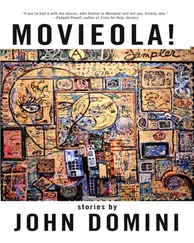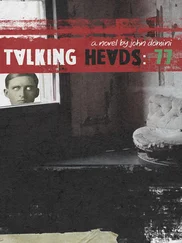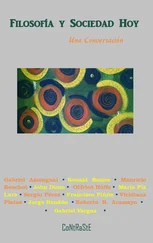“Twenty years,” she said, working up a smile.
“It will be twenty years this September,” Jay said.
This reporter was a man, his shirt-cuffs folded back from the wrist Italian-style. He looked from wife to husband. “How much time do you stay in Naples?”
“Uh, all right,” Barbara began. “The kids start school again—”
“We’re in it for the long haul,” Jay said. “The long haul, capisce? Today, hey. You’ll see. This is my family.”
The husband kept up the stage business even when he put his back to the reporters. As he gave the children their assignments, he loudly threw in additional tidbits, anything the press might find useful. He reiterated what he’d done with the frames and photos — a thumbnail version, meno male . He mentioned the camp’s specialty meals based on country of origin. Barb had caught the act before, after all she’d married a salesman, but today the pitch wasn’t just Jay. This was Jay morphed, Jay after he’d learned a few things about the “printing facility” from Lieutenant-Major Kahlberg. She couldn’t see a decent way to stop it. When her husband asked if she wanted to say anything about what she might do in the chapel, Barbara only shook her head.
He continued quietly. “Church work, guys. You know. It’s private. My Barbara, she’s always done church work.”
Catching her reflection in a steel stovetop, she tried not to scowl. But in another minute, give the man credit, the Jaybird again diverted the reporters’ attention. He had them taking pictures. First group shots, sentimental as Sears Roebuck, and then the photographers singled out Dora and Sylvia and put them together with the kitchen crew. Peach-fleshed blond schoolgirls with rope-sinewed black laborers.
The Africans spoiled the effect somewhat, saying cheese. Seeing their gap-toothed smiles, one with a fat gold insert, Barbara again wondered at how little fuss these clandestini were making over Paul. When the family had pulled into the parking lot, the refugees had acted the same as they would have for any drop-ins from the white world. They’d come to say hello, they’d given the van a rap or two, but they’d acted like the middle child was just another well-meaning ofay. This when they must’ve heard of the boy. The communications network that began down in the centro storico , the exclusive Neapolitan wireless network, surely had a relay station up in this Centro . Besides, here and there among the tents, you caught the blather of radio or TV But these musclemen in the kitchen would rather pose with the girls, and Barbara began to think that, here under the doctored photos, the faithful prayed to another miracle-man — not the son, but the father. Jay had named the roads, Jay provided the manna. Even to the Catholics in camp, then, the Band-Aid on the capo’s temple might be just one more piece of proof that he was extraordinary. Just, the rich get richer.
Then too, it’d been more than a week since the healing. A week was a long time in a place like this. The aborted kidnap, just day before yesterday, must’ve gotten hashed over a thousand times by now. In camp, no doubt, every morning hatched a fresh crop of rumors. Everyone was so willing to clutch at a wild hair.
Before leaving the girls, Jay looked to Kahlberg. The officer shot a glance at his soldiers, and the blue-shirts slung off their semi-automatics. With the guns at their feet, the troopers settled into the coolest corner of the kitchen they could find. Then the father took Barb and the boys over to the infirmary in the adjacent Big Top, accompanied by the press and fifteen or twenty clandestini still hopeful of getting on the news. These strays thinned out further once the group reached the hospital and everyone went to work. Paul was put on the same detail as John Junior and Chris, fitting together beds and shelving. At that point a couple of the reporters decided they had enough, and a couple others elected to stay with Jay and the boys. When the mother set off to find the chapel, only the woman with the half-gloves followed.
Barbara believed she recognized the woman, but she wasn’t going to say anything. The reporter was busy anyway, checking a light-meter and then switching on her spot. The chapel tent ran longer than broad, with rows of dull folding chairs facing a riser on which stood a low table. The walls were strung with wraps and scarves, from blush-purple to grape-blue, polyester or even silk. What with the heat, the flutter, the color, a visitor seemed to have arrived at the sacred campsite of God’s chosen refugees. It seemed like sunset, time for worship, so much so that Barbara enjoyed a mild wave of spirit-tension, a tremor or two. Ahead, front and center, a low table held a burning oil lamp, a willowy flame that sweetened the camp’s dank and sent glimmers along the first row of chairs. Before this makeshift altar sat a dark girl in a wheelchair.
Dark, but not African. A gypsy, rather, the girl had features of a near-Asian sleekness, and her skin matched the color of the heavy liquid in the lamp. Someone had fitted her legs into limp black jeans, and topped these with a flamboyant wrap, its indigo flecked with tassels and in-sewn coins. The wheelchair itself was a one-woman gypsy caravan, draped along the arms with gilded velvet.
In the next minute the camerawoman was asking for a shot of Barb and the girl together. The invalid made excellent copy, a pretty face and a crumpled body.
Barbara ignored the request. If she started striking poses she’d be no better than Kahlberg back in his print facility, gussying up the family photos. Anyway the press would have a Suzy Spotlight soon enough, after Jay’s mother arrived. The wife, with her back to the camera, fished her rosary out of her purse. Propping herself against one of the locked chair wheels, she went down on one knee. From that angle, in the false twilight, the eyes of the cripple beside her appeared almost supernatural. The eyes of a Mongol goddess. La Mama Americana kissed her beads and began — but how could she have failed to realize that prayers made terrific television? While she worked through the first Hail Mary, trying to get to the bottom of her rage, the camerawoman went into a crouch and began looking for the best angle, spider-legging now left and now right in glamour jeans. She paused only to gesture go on . Barbara got the picture, another Nativity scene, even as she kept up her murmuring. She was never comfortable stopping mid-rosary. Her mind’s eye however returned to profane business. Wasn’t this young woman with a camera a ghost from that first dusty morning downtown? Wasn’t she the one who’d taped the attack and the healing? The camera had been a smaller model, that morning, but this was the woman, all Cher-hair and bold moves.
Barbara finished her Ave and stumbled back, up then down, seating herself with a thump on the riser. The curve of her spine brushed the rim of the coffee-table altar. When the reporter lowered her camera, for a moment Barb couldn’t distinguish between the two flashy younger women. Then the reporter started to ask questions. Had Mrs. Lulucita always known such faith? What sort of a churchgoer was her mother?
Barbara eyed the gloves, accessories of a career girl. “I don’t know how to talk to you,” she said.
“Tell me about Paul, signora. A woman of the Church, you must wonder about Paul. What do you make of him, the miracle?”
“Make of him…” Barbara tugged at a seam.
“Is it a miracle, do you think? What do you think?”
“Oh, listen. If you learn anything as a mother, you learn that once a kid gets out of the house, sooner or later they’re going places you never dreamed of.”
Tough Mama. Barb let her dress alone and sighed.
Читать дальше












